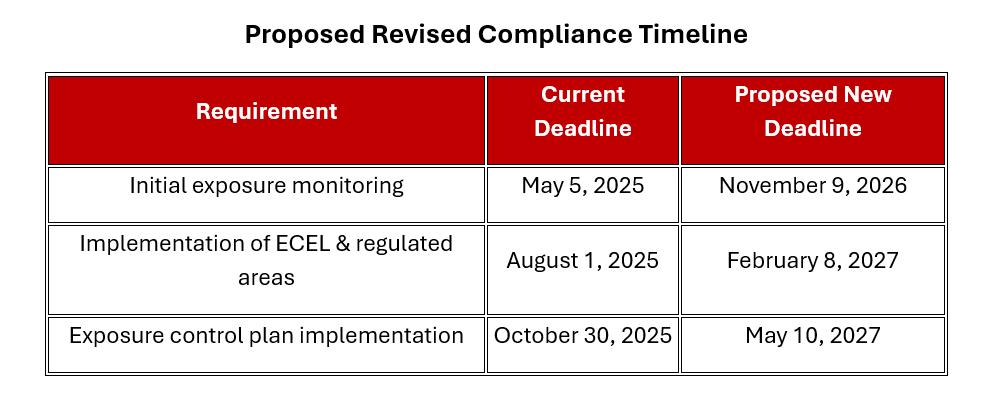The U.S. Environmental Protection Agency (EPA) has proposed extending key compliance deadlines for non-federal laboratories under its final methylene chloride risk management rule, offering up to 18 additional months for these facilities to meet safety requirements. The extension is aimed at easing implementation challenges and aligning timelines with federal labs and contractors.
The proposal is part of EPA’s continued enforcement of the Workplace Chemical Protection Program (WCPP) under the Toxic Substances Control Act (TSCA).
Background: EPA’s 2024 Final Rule on Methylene Chloride
In 2024, the EPA finalized a risk management rule that:
• Banned most consumer uses of methylene chloride
• Required strict industrial and laboratory safety protocols
• Established the WCPP to standardize exposure controls in lab environments
Key safety provisions include:
• Initial and periodic exposure monitoring
• Mandatory personal protective equipment (PPE)
• Defined regulated work areas
• A written exposure control plan (ECP) for hazardous chemical handling
Why the Extension Is Being Proposed
Non-federal labs—including universities, private research institutions, and independent testing facilities—have reported widespread difficulty meeting the original compliance deadlines. Challenges cited include:
• Budget limitations for purchasing monitoring equipment
• Delays in training or hiring safety staff
• The complexity of coordinating implementation across multiple lab sites
To accommodate these institutions, the EPA has proposed an 18-month compliance extension for three critical WCPP requirements.

|
📌 Note: These revised deadlines apply only to non-federal laboratories. All other regulated entities must still comply under the original rule unless separately addressed.
Enforcement Outlook
Until the proposed extension is finalized, current deadlines technically remain in effect. However, the EPA has clarified that these requirements are currently a low enforcement priority, particularly for labs demonstrating good-faith efforts toward compliance.
This provides temporary relief but should not be interpreted as a permanent waiver of obligations under TSCA.
Public Comment Period
EPA has opened a 30-day public comment period through docket EPA-HQ-OPPT-2020-0465. Stakeholders—including academic institutions, trade groups, and safety officers—are invited to submit input on:
• Implementation barriers
• Feasibility of the proposed new timeline
• Suggestions for alternative compliance pathways
🗓️ Comment deadline: June 26, 2025
📄 Submit comments via EPA Docket
What This Means for Laboratories
This proposed extension offers significant regulatory flexibility for impacted labs. Key takeaways:
🧪 Extended timeline to procure and install exposure monitoring systems
📑 More time to develop and train staff on exposure control plans
⚖️ Reduced enforcement risk during the transition period
🛠️ Improved opportunity for institutions to align with WCPP compliance requirements
EPA continues to encourage early action, even as it considers formalizing the delay.
Reference: EPA: Methylene Chloride Compliance Relief Proposal
Reach out to our regulation experts on chemical and product regulatory compliances



